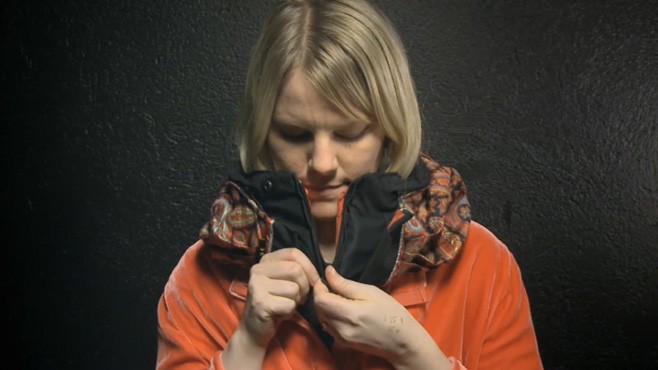 Have you ever wanted to experience white knuckles, whiplash and motion sickness from the comfort of your favourite Starbucks nook?
Have you ever wanted to experience white knuckles, whiplash and motion sickness from the comfort of your favourite Starbucks nook?
Category Archives: Technology
Mindblowing Hyperlapse Videos created using Google Street View.
New ‘Invisible’ Bike Helmet.
 This is truly impressive. After 10 million in venture capital and 7 years of research, Anna Haupt and Terese Alstin have produced ‘Hövding,’ the invisible bike helmet. I won’t ruin the video by explaining how it works, all i’ll say is that this helmet looks like nothing short of a game-changing, victorious piece of design.
This is truly impressive. After 10 million in venture capital and 7 years of research, Anna Haupt and Terese Alstin have produced ‘Hövding,’ the invisible bike helmet. I won’t ruin the video by explaining how it works, all i’ll say is that this helmet looks like nothing short of a game-changing, victorious piece of design.
Dublin to host Europe’s largest nanotechnology conference.
 Nanoweek 2013 (14-21 June) – a week-long programme of activities designed to promote nanoscience and nanotechnology in Ireland will see Dublin will host the sixth EuroNanoForum conference as part of Ireland’s presidency of the European Council in the Convention Centre Dublin from the 18-20 June 2013.
Nanoweek 2013 (14-21 June) – a week-long programme of activities designed to promote nanoscience and nanotechnology in Ireland will see Dublin will host the sixth EuroNanoForum conference as part of Ireland’s presidency of the European Council in the Convention Centre Dublin from the 18-20 June 2013.
The conference will showcase nanotechnology innovations to 1,200 delegates from 50 countries with high-profile speakers from industry, government and research, such as Shell, Nokia Research Laboratories, Intel, Philips Healthcare and Max-Planck Institute among others, discussing the economic and technological impact of nanotechnologies on European growth. It is being organised as a joint venture between Enterprise Ireland and Spinverse and supported by the European Commission Directorate for Research and Innovation.
A Unitary Patent System for Europe
Representing one of the final major steps towards the establishment of a unitary patent system for Europe, the Unified Patent Court Agreement was signed by the majority of EU Member States in Brussels last week (19 February 2013).
What is the Unified Patent Court Agreement?
This Agreement constitutes a package which also includes two EU Regulations: unitary patent protection; and, associated translation arrangements (adopted in December 2012). The package provides the legal basis for the future European Unitary Patent system – a system that has been a hot topic of discussion at European level for over thirty years.
The Unified Patent
 Current practice requires that for a business or individual to confer legal protection to their intellectual property, an application for patent protection must be submitted centrally, through the European Patent Office (EPO) in Munich. Once granted, the patent must be validated in each state in which protection is sought, a process that can involve significant costs due to translation and local validation fees.
Current practice requires that for a business or individual to confer legal protection to their intellectual property, an application for patent protection must be submitted centrally, through the European Patent Office (EPO) in Munich. Once granted, the patent must be validated in each state in which protection is sought, a process that can involve significant costs due to translation and local validation fees.
Parallel Worlds, Parallel Lives.
 “How much do we know about the people we rub shoulders with every day?” is the question at the heart of this BAFTA-winning documentary first broadcast in 2007. The parallel lives in question are those of Mark ‘E’ Everett – the front-man of the band Eels – and his father, Hugh – a theoretical physicist famed for his many worlds interpretation of parallel universes.
“How much do we know about the people we rub shoulders with every day?” is the question at the heart of this BAFTA-winning documentary first broadcast in 2007. The parallel lives in question are those of Mark ‘E’ Everett – the front-man of the band Eels – and his father, Hugh – a theoretical physicist famed for his many worlds interpretation of parallel universes.
We follow Mark as he chats to former colleagues and students of his father – a genius who abandoned academia in favour of the defense industry when it became apparent that the science world wasn’t ready for his theory. Mark knew nothing of the waves his father had made even up until his death of a heart attack in 1982.
“My father never, ever said anything to me about his theories. I was in the same house with him for at least 18 years but he was a total stranger to me. He was in his own parallel universe. He was a physical presence, like the furniture, sitting there jotting down crazy notations at the dining room table night after night. I think he was deeply disappointed that he knew he was a genius but the rest of the world didn’t know it,” – Mark Oliver Everett.
How Small Businesses can Optimise Digital Marketing – A Recent Seminar Hosted by NovaUCD

NovaUCD courtesy of ucd.ie
Last Thursday saw the opening of NovaUCD’s doors for a seminar entitled How Small Businesses can Optimise Digital Marketing. NovaUCD is UCD Belfield’s Innovation and research centre dedicated to inspiring creative graduates, putting knowledge to work and growing and supporting new business in Ireland. This seminar was organised by the NovaUCD Client Social Media Working Group. This group is comprised of members of the various start-ups at the institute and they meet monthly to share social media strategies and experiences. The seminar was moderated by Nicole Nelson @NNelsonic who holds BA degrees in both Anthropology and Linguistics.
DCU announces 200 Cleantech jobs
Minister for Jobs, Enterprise and Innovation, Richard Bruton TD has officially launched a new national centre for innovation in the Cleantech sector at DCU Innovation Campus.
 The initiative was established on a site previously owned by Enterprise Ireland to DCU for the specific purpose of this project and will be the location of choice for Cleantech start-ups, SMEs and larger companies. Cleantech – a fast-growing area of international commerce is worth 5 trillion annually and provides insight to Fortune 1000 corporations regarding environmental challenges – wind, water and waste management to name just a few. This insight helps to make better decisions that foster growth, reduce cost and meet consumer and government demands for improved environmental quality.
The initiative was established on a site previously owned by Enterprise Ireland to DCU for the specific purpose of this project and will be the location of choice for Cleantech start-ups, SMEs and larger companies. Cleantech – a fast-growing area of international commerce is worth 5 trillion annually and provides insight to Fortune 1000 corporations regarding environmental challenges – wind, water and waste management to name just a few. This insight helps to make better decisions that foster growth, reduce cost and meet consumer and government demands for improved environmental quality.
Facebook’s new ‘Graph Search’ – what are the implications?
Last week, Facebook rolled out what it described as its ‘third pillar’ – after News Feed and Timeline – a new search feature that goes by the name of ‘Graph Search.’ This new feature is basically a modification of the previously existing but under powered search feature. It which allows users to trawl through the 1 billion + profiles on the network using broad search terms to cross reference four general terms – people, places, photos and interests – with their goal to eventually cover all online content. In the event that Graph Search fails to provide a successful cross reference, the search will default to Microsoft’s Bing – who won the rights to Facebook’s search function when talks with Google broke down due to privacy issues.
 So what implications do social graphs have on the recruiting world?
So what implications do social graphs have on the recruiting world?
Well, by integrating a system of appraisal with a dedicated social element, professional connections can be made with greater expedience and with a higher degree of specialisation. Endorsements (of anything from products to potential clients) can be regarded as ‘more genuine’ when the person making the claim can be traced back to an extensive ‘lived’ profile as opposed to a faceless cypher. The latter is often the case on sites such as Yahoo Answers, Trip Advisor or Amazon where ‘trolls’ – users who deliberately denigrate a product or service – and ‘shills’ – accounts set by a company to covertly endorse their own product or service – are rife.
Google + was an effort on the part of Google to embed a social element into what was and is the most popular and vast search engine available. The network now claims over 500 million users who have the ability to synchronise their social data with the already burgeoning suite of Google products including: Google Places, Google Maps, Google Webmaster Tools and of course Google Search. The claim made by detractors is that most of these users were signed up by default through their Gmail and YouTube accounts. However, it is largely acknowledged that Google + is a product which will only go from strength to strength in terms of reach and ability to connect users – especially on a professional level.
The strengths of Facebook’s Graph Search lie in the dedication of its users to document with accuracy and accountability their ‘likes.’ As a means of finding restaurant recommendations, exotic places to visit or social gatherings this technology poses a serious threat to Google Search. Questions with vague parameters such as “Who is Mary’s friend who likes Indian food and where does she eat most?” can be answered easily by this function. Endorsements on Facebook are as easy as clicking the ‘like’ button. But this is also where Graph Search’s weakness lies – it remains to be seen just how forthcoming Facebook users will be when it comes to more detailed appraisals than just “I like.” Also at the forefront of discussion is the issue of privacy – and not just the details of our profiles which we strictly don’t want to be made public. There are also aspects of our profile which we are willing to share publicly but maybe not necessarily in the context of a search engine inquiry.
Business author Don Peppers has hinted at the value of social filtering for websites favoured by the recruitment industry such as LinkedIn. It is not a wild assumption that the user base of LinkedIn would probably be more motivated – toward evaluating the companies they work for or giving concise but insightful appraisal of a headhunting firm they have dealt with – than the average Facebook user for whom social networking is an activity conducted largely in their down time. These evaluations would be searchable through the user’s own LinkedIn graph making it incredibly easy to explore the possibility of future professional connection with greater depth and expedience. It is fair to say, at any rate, that social filtering represents one of the most exciting developments in consumer technology to come along in some time.
Conor Hughes is a marketing executive at Vertical Markets which incorporates Life Science Recruitment and Capital Markets Executive Search.
About.me – your online business card
This is a super tool which we’ve started using in here. As you’ll know, we are huge fans of LinkedIn. For people with a slightly larger online footprint (blog, facebook, contact details etc.) there is a super new site called http://About.me. Recently launched, if you register now you should be able to get a good username. It’s a 1 page site which will allow you to write a profile of yourself, picture, and various links – in one handuy location.
On a CV it can save a lot of room, theoretically you could just provide this page instead of email / address / LinkedIn profile etc. As an added bonus to users, there is an analytics tool, so you can see page views by date.
My own page is here, and our IT-guru-in-chief Gab’s is here
What do you think of the site? Let us know if you sign up!
-Brian

